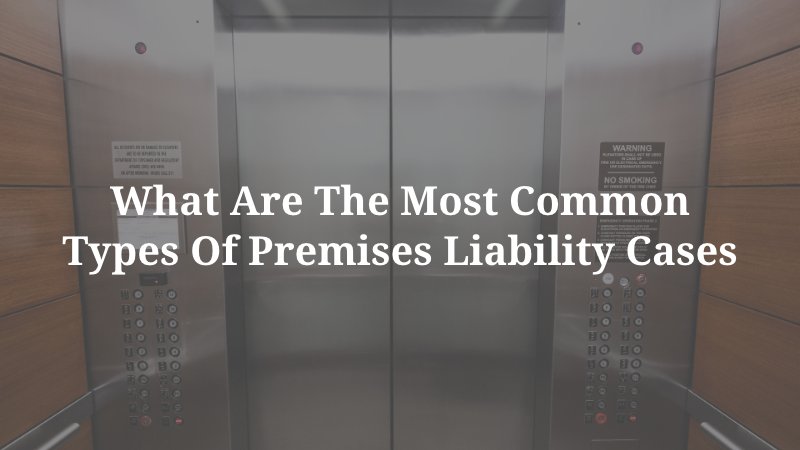What are the Most Common Types of Premises Liability Cases

Premises liability refers to the legal responsibility of property owners or managers to maintain a safe environment for individuals who legally enter their property. When they fail in their duty, property owners and managers can be held liable for injuries when the victim brings a premises liability case. Here are the most common types of accidents that give rise to premises liability cases.
Slip and Fall Accidents
Slip and fall accidents are a leading type of premises liability case. An individual may slip and fall on a wet or slippery surface due to poor maintenance or cleaning, inadequate lighting, or uneven flooring. These accidents can lead to severe injuries such as broken bones, sprains, and head trauma.
Dog Bites
Under Georgia’s Responsible Dog Owner Act, dog owners can be held responsible when dogs under their control seriously injure a person or another animal. Therefore, when a dog attacks or bites someone visiting the property, the property owner may be held responsible for the victim’s injuries. However, the injury must be serious, for example, a wound that requires stitches, hospitalization, plastic surgery, causes infection or disease, or when the attack causes a broken or dislocated bone or results in the victim’s death.
Negligent Security
Property owners may be liable if they fail to provide adequate security measures to protect their customers or visitors from foreseeable harm. For example, if a visitor is attacked in a parking garage due to poor lighting or a lack of security cameras.
Elevator and Escalator Accidents
Malfunctions in elevators or escalators can result in severe injuries or even death. Property owners are responsible for ensuring these machines are regularly inspected and properly maintained.
Swimming Pool Accidents
Property owners must take proper precautions to prevent accidental drowning and injuries in swimming pools and the surrounding area. For example, installing proper fencing, warning signs, and lifeguards. If a property owner fails to maintain these safety measures and someone is injured or killed in a pool accident, they may be held accountable.
Retail Store Accidents
Retail store owners and managers have a duty to ensure that their stores are safe for customers. This includes properly maintaining shelves and displays, cleaning up spills, and keeping aisles clear of obstacles. If a customer is injured due to negligence on the store’s part, the property owner may be held responsible.
Amusement Park Injuries
Visitors to amusement parks expect to have fun and that their safety will be protected. When accidents occur due to faulty equipment or inadequate safety measures, the amusement park operator can be held responsible.
Toxic Exposure
Property owners may be held responsible for failing to warn visitors of potentially hazardous materials on their premises or failing to properly remove toxic substances such as asbestos or mold.
Types of Damages Available in a Premises Liability Case
The following types of compensation are often available in a premises liability case:
Economic Damages
These damages are measurable losses that can be associated with tangible or monetary expenses resulting from the accident, such as lost wages, medical bills, and property damage.
Non-Economic Damages
These damages cannot be measured in terms of money, such as pain and suffering, emotional distress, loss of companionship, or loss of enjoyment of life.
Punitive Damages
These damages are rarely awarded and are meant to punish the defendant (at-fault party) for their conduct and deter others from acting in a similar manner.

